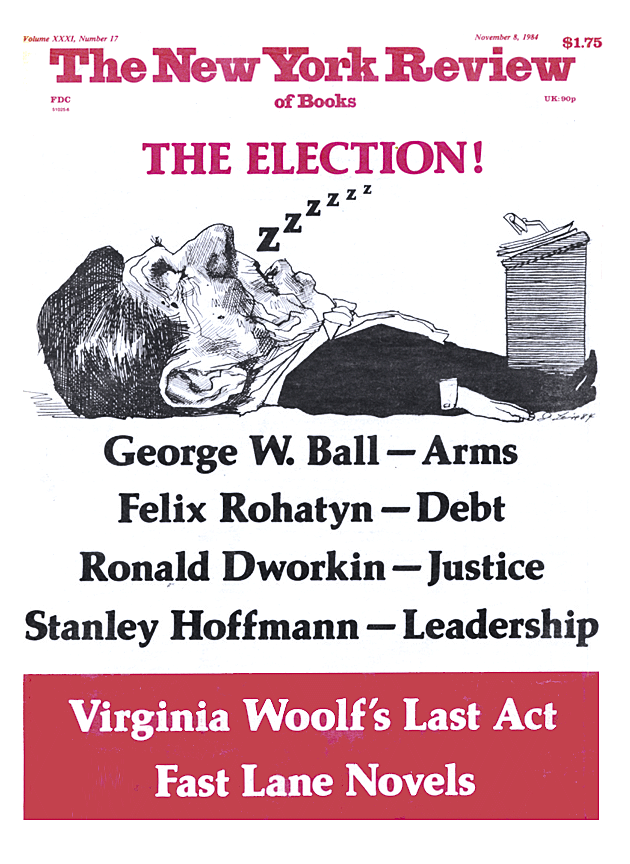In response to:
The Saving of El Salvador from the June 14, 1984 issue
To the Editors:
It’s a !#p9L0@! outrage for Christopher Dickey, in his essay, “The Saving of El Salvador” [NYR, June 14], to refer to my book Violent Neighbors: El Salvador, Central America and the United States as “amiable.” Other reviewers have described its tone as “ironic,” “sardonic,” “witty,” “skeptical,” “cynical,” and even “vitriolic,” but not “amiable” or anything like it. The worst damned thing about that ridiculously inappropriate word is that it is often applied to Ronald Reagan, the smilingly malevolent blunderer whom I describe, unamiably, as “the most ideologically rigid and least well-informed President of modern times.”
Dickey is no stronger on meaning than on tone. He says, for example, that I am “groping for a Draconian solution” when I suggest that if I were President I might send troops to El Salvador but that their mission would be “to arrest D’Aubuisson and his crowd and send them to Paraguay or Patagonia.” The one sort of punishment that exile is not, particularly in El Salvador, is Draconian.
According to Dickey, José Napoleón Duarte, the president of El Salvador, speaks “broken English.” The term that brings to mind such dialect comedians of yesteryear as Henry Armetta, Parkyerkarkus and El Brendel. Duarte certainly had no trouble making himself understood during his recent visit to Washington. What Dickey may have meant was that Duarte, who is, after all, a graduate of Notre Dame University, speaks accented English.
Dickey’s touch with metaphor isn’t any defter. For example, he congratulates Raymond Bonner, the author of the excellent Weakness and Deceit: U.S. Policy and El Salvador, for his “careful sifting of facts from the quagmire of official deception.”
These lapses probably wouldn’t have been so obtrusive if Dickey, in an essay of 5,000 words, hadn’t kissed off Violent Neighbors with five or six paragraphs, consisting in the main of quoted comments by Duarte that have less to do with the book than with the case that Dickey is trying to make, largely by innuendo, against him. The two-thirds of the work that doesn’t deal with El Salvador is ignored.
Violent Neighbors which has been reviewed favorably and at length by Professor Walter LaFeber of Cornell and other academic and journalistic experts, deserves more serious consideration than this, and from someone with more experience than the talented but rather callow Dickey. Then again perhaps I should count myself lucky. His references to two of the five books purportedly under review are even briefer, and one is not mentioned at all.
Tom Buckley
New York City
Christopher Dickey replies:
I think Mr. Buckley’s letter shows that even when he is angry he is amiable.
This Issue
November 8, 1984


